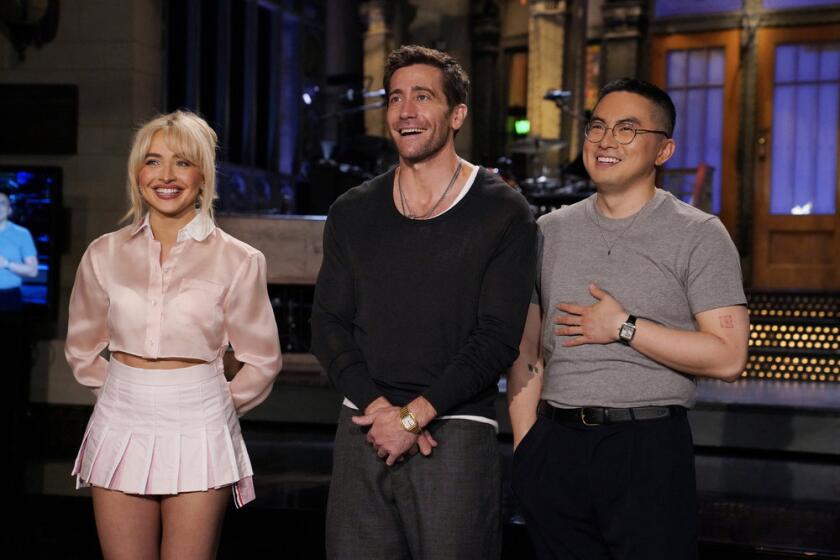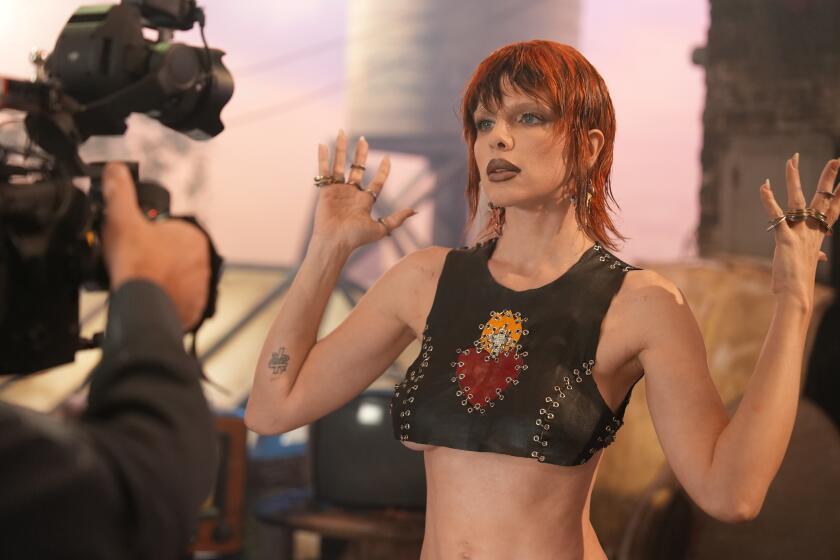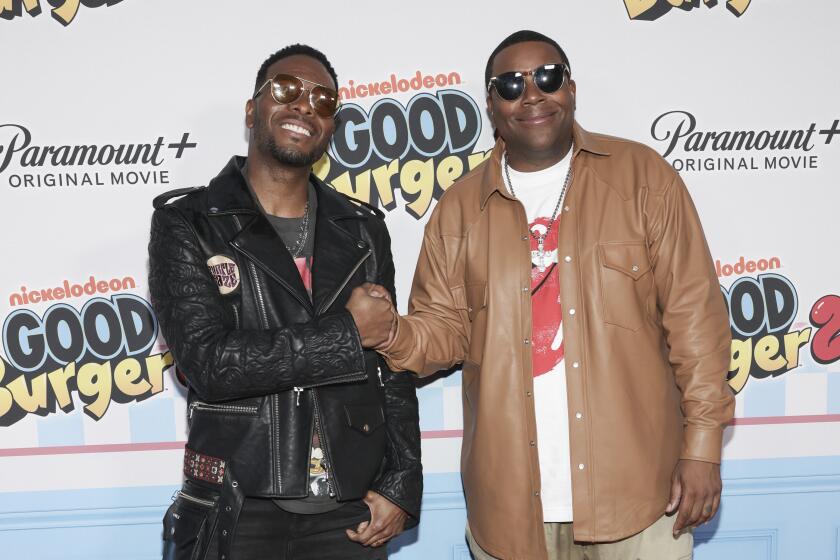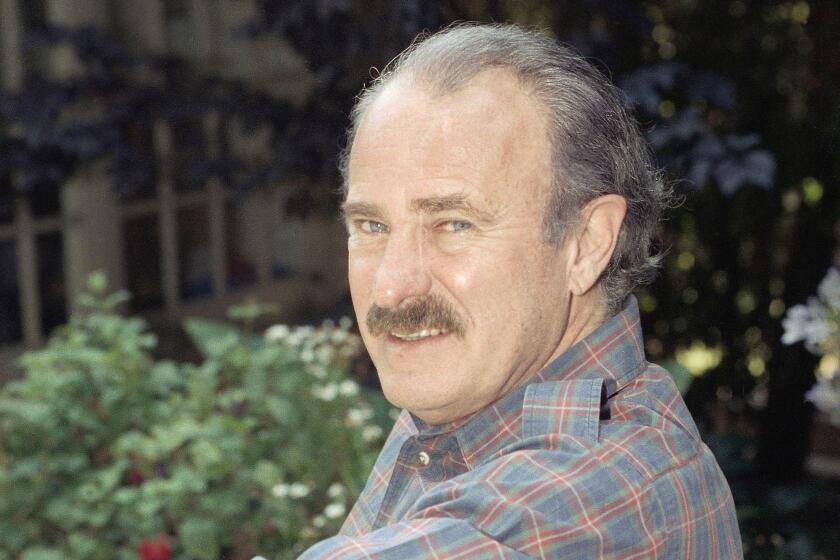Kidnapped by a Rapist One Day, and by TV the Next
The local television news was on, but I wasn’t paying attention, which is often the best way to watch. I heard a young woman talking about a kidnapping ordeal and thought it was oddly similar to the story of the two Antelope Valley teenagers.
Couldn’t be that case, I figured. Or if it were, this teenager on the tube couldn’t have been one of the victims. She seemed too relaxed--too comfortable in front of the camera--to have been abducted, raped, bound, and freed only one day earlier when her captor was shot dead in a hail of bullets.
Besides, what parent would allow a child who’d just been the victim of such a harrowing nightmare at the hands of so despicable a man to talk about it on television a mere 24 hours later?
Maybe it was yet another kidnapping case, I thought. Or maybe this was someone from a new reality show in which contestants are abducted at gunpoint, from a lover’s point somewhere, and then try to break free. A preposterous concept, yes. Out of the question, probably not.
Then, upon closer listening, I realized my mistake. This was one of the two Antelope Valley teenagers who’d been abducted.
Although we sometimes commit our own sins of excess in the newspaper business, we hadn’t used her name in The Times because of our policy against disclosing the identities of minors who are victims of sex crimes. But here she was on TV, 17 years old and sharing her story with unseen strangers, speaking with an eerie detachment.
Obviously, she’d been through hell, and I almost wanted to go tell her to get back in the house and slam the door on the next reporter who came around asking for the details.
The beauty of the deal for television, which so defines our culture, is that there is no accountability for such exploitation. TV doesn’t have to admit that having cheapened women at every opportunity, shamelessly selling titillation at a profit in the billions, it is in no position to comfort the victims of a violent sexual assault.
But this unfortunate teenager was not alone in the need to surrender all sense of privacy. She was not the only one who chose to be heard, seen, validated.
The sheriff of Kern County was on “Larry King Live” before the crime scene was cleared, telling the tale. Over the weekend, the sheriff did his thing again on “Geraldo Live,” calling the gunning down of the abductor “God-driven,” and eagerly explaining the vagaries of what must be done once a suspect “goes mobile.”
The congratulatory Rivera, in fine caricature, was ready to saddle up and ride out with the next posse.
Then on Monday morning I turned on the TV to find that the teenagers themselves had gone national. Flanked by parents and other relatives, they told their story to Katie Couric on the “Today” show. The story was chopped into segments--toothpaste or some such had to be sold--and spun into the blender that trivializes tragedy and numbs us all.
During one break, Matt Lauer could only muster a curious “Hmmm” before teasing the next segment. Maybe he’s inured to tragedy by now, or perhaps he was ashamed that however spectacular the story, 16- and 17-year-old rape victims were being exposed to all the world thanks to “Today’s” coup, which it repeatedly touted as a big “exclusive.”
“It was preposterous,” former CBS News correspondent Cinny Kennard said of the days-long spectacle. Kennard teaches ethics in journalism at USC. “There was a day when we did have ethics; we did have standards. We didn’t go knock on the door of a rape victim and try to get her on camera.”
In this particular case, a spokesman for the two families has been quoted as saying they thought their story could help others caught in the same horrifying situation. What might help, actually, is for someone to suggest that responsible parents--no matter how traumatized they might be--don’t go on national television with their children a few days after they’ve been raped.
But this idea that there’s a need to go on TV, if not an obligation, is one of the darker aspects of the story.
Maybe there’s a sense the trauma is not over until you affirm your very existence on camera.
“This is now part of the American ritual,” Kennard says. “A jury verdict comes in, police allegedly beat a suspect, and the next thing is something you do just because you’re supposed to do it. You go on Larry King and then tell Katie and Matt all about it.”
Maybe part of it is knowing that Larry, Matt and Katie will never turn you away.
“You’ve got twentysomething producers being paid nothing to chase these stories, trying to make a career out of a ‘get,’ ” says Kennard. “You’ve got to get the victim on. You’ve got to get the rape suspect on. You’ve got to get Samantha Runnion’s mother on. Whatever you have to do, you’ve got to get the ‘get.’ ”
Discretion has been abducted in this country. Under the guise of compassion and public service, our friends Matt and Katie delivered teenage rape victims into our community of living rooms, and managed, as only television can, to further dehumanize all of us.
*
Steve Lopez writes Sunday, Wednesday and Friday. Reach him at steve.lopez@latimes.com.
The complete guide to home viewing
Get Screen Gab for everything about the TV shows and streaming movies everyone’s talking about.
You may occasionally receive promotional content from the Los Angeles Times.




